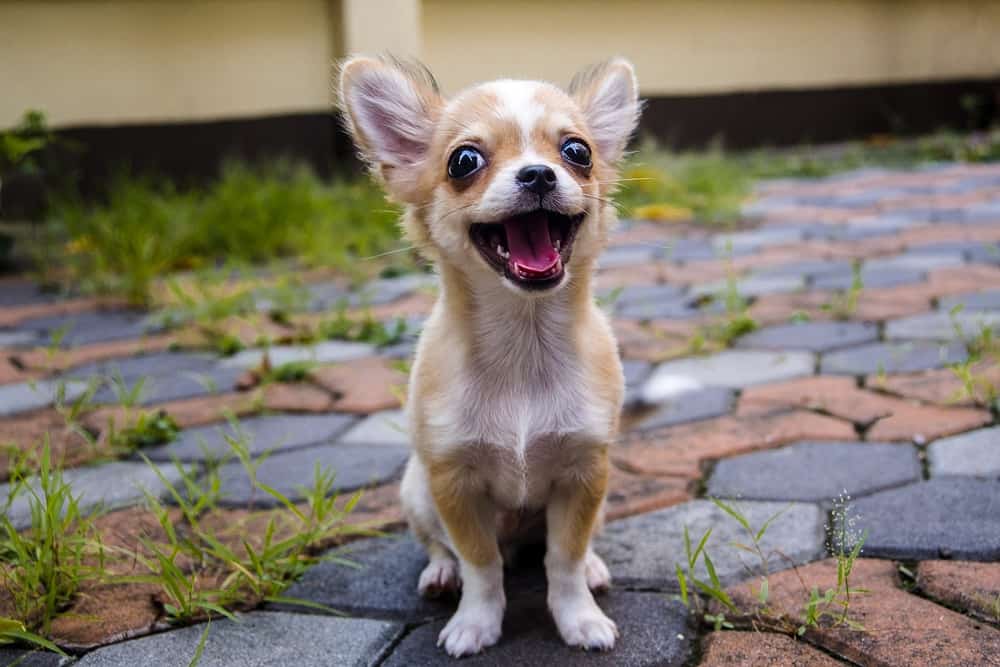Did you know that Chihuahuas are the smallest breed of dog in the world? Despite their size, they have a big personality and make excellent companions. If you’re considering owning a Chihuahua, there are a few important things you should know.
Chihuahuas have a rich history that dates back to ancient civilizations in Mexico. They were originally bred as companions, believed to have been revered by the Toltecs and Aztecs. Today, they are a popular choice for city dwellers due to their small size and adaptability to apartment living. However, it’s essential to provide them with regular exercise to keep them healthy and prevent obesity. Additionally, Chihuahuas require socialization and training from an early age to prevent any potential behavior issues. So, if you’re looking for a pint-sized yet lively companion, a Chihuahua might just be the perfect fit.
Thinking about owning a Chihuahua? Here are some key things to know:
- Chihuahuas are small, but don’t underestimate their energy and feisty personality.
- They require minimal exercise but need mental stimulation through play and training.
- Chihuahuas are prone to dental issues, so regular teeth brushing is a must.
- They can be protective and wary of strangers, so socialization is important.
- Chihuahuas have a long lifespan, averaging 12-20 years, which means long-term commitment.

What Do I Need to Know About Owning a Chihuahua?
Are you considering bringing a Chihuahua into your home? These pint-sized pooches are known for their big personalities, but they also come with their own unique set of needs and characteristics. From their exercise requirements to their temperament, it’s important to educate yourself about Chihuahuas before becoming a dog owner. In this article, we will explore everything you need to know about owning a Chihuahua, from their history and appearance to their care and training.
The History and Appearance of Chihuahuas
The Chihuahua breed originated in Mexico, and they are named after the Mexican state of Chihuahua. These tiny dogs are thought to be descended from ancient Techichi dogs, which were companions to the Toltec civilization. Chihuahuas are known for their small size, with adults typically weighing between 2 and 6 pounds. They have a distinct apple-shaped head and large, round eyes. There are two main coat types: smooth coat and long coat. The smooth coat variety has short, shiny fur, while the long coat variety has long, flowing hair. Chihuahuas come in a variety of colors and patterns, including fawn, brindle, black, white, and more.
Despite their small size, Chihuahuas are known for their big personalities. They are often described as confident, bold, and energetic. Chihuahuas are loyal and loving towards their owners but can be wary of strangers. They are generally good with children but may not tolerate rough handling. Due to their size, Chihuahuas are best suited for families without small children or as companions for older adults. Proper training and socialization from an early age are crucial to ensure they grow into well-behaved and well-rounded dogs.
The Care and Maintenance of Chihuahuas
Chihuahuas may be small, but they still require regular care and maintenance to keep them healthy and happy. Here are some important aspects to consider:
Diet and Nutrition
A well-balanced diet is essential for the overall health of your Chihuahua. Choose a high-quality dog food that is appropriate for their size, age, and activity level. Avoid overfeeding, as Chihuahuas are prone to weight gain. Consult with your veterinarian for specific dietary recommendations and portion sizes.
Exercise and Activity
While Chihuahuas are small, they still need regular exercise to burn off energy and maintain a healthy weight. Daily walks, playtime, and mental stimulation are important for their physical and mental well-being. However, it’s important to be mindful of their small size and delicate nature. Avoid excessive jumping or rough play, as it may lead to injury.
Grooming
The grooming needs of a Chihuahua will depend on their coat type. Smooth coat Chihuahuas require minimal grooming, with occasional brushing to remove loose hairs. Long coat Chihuahuas, on the other hand, require more frequent brushing to prevent matting and tangling. Regular nail trims, teeth brushing, and ear cleaning are also essential parts of their grooming routine.
Health and Veterinary Care
Chihuahuas can be prone to certain health issues, including dental problems, patellar luxation, heart conditions, and hypoglycemia. Regular veterinary check-ups, vaccinations, and preventive care are crucial for maintaining their health. It’s important to be aware of any signs of illness or discomfort and seek veterinary attention promptly.
Training and Socialization
Proper training and socialization are important for Chihuahuas to become well-behaved and well-adjusted dogs. Start training from a young age using positive reinforcement techniques such as treats and praise. Socialize your Chihuahua by exposing them to various people, animals, and environments to help them become confident and friendly.
Chihuahuas as Family Pets
Chihuahuas can make wonderful family pets for the right household. Here are some additional factors to consider:
Adaptability
Due to their small size, Chihuahuas are adaptable to various living situations. They can thrive in apartments or homes with small yards. However, it’s important to provide them with enough exercise and mental stimulation, regardless of the size of your living space.
Companionship
Chihuahuas are known for their strong bond with their owners and make excellent companions. They thrive on human interaction and prefer to be near their family members. If you’re looking for a loyal and devoted companion, a Chihuahua may be the perfect fit.
Compatibility with Children and Other Pets
Chihuahuas can coexist well with children and other pets in the household, but proper introductions and supervision are essential. Teach children how to interact gently with the Chihuahua and always supervise interactions to prevent any accidental harm.
In summary, owning a Chihuahua requires careful consideration and commitment. From their history and appearance to their care and training needs, it’s important to understand what it takes to provide a loving and suitable home for these small but mighty dogs. By educating yourself and providing the necessary care and attention, owning a Chihuahua can be a rewarding and enriching experience.
Key Takeaways
- Chihuahuas are small-sized dogs, making them suitable for apartments or small living spaces.
- They have a bold and confident personality, but can be wary of strangers.
- Regular exercise is important for Chihuahuas to prevent weight gain.
- Chihuahuas require socialization and training from an early age to overcome their tendency to be yappy or aggressive.
- Health issues such as dental problems, patellar luxation, and heart conditions are common in Chihuahuas, so regular vet check-ups are essential.
Frequently Asked Questions
Are you considering owning a Chihuahua? Here are some important things you should know:
1. What kind of living environment is suitable for a Chihuahua?
A Chihuahua can adapt to various living environments, but they tend to thrive in homes with fewer stairs and minimal outdoor space. They are indoor dogs and prefer a cozy and warm atmosphere. However, they still need regular exercise, so a small yard or access to daily walks is beneficial.
Chihuahuas are delicate and can be easily injured, so it’s important to puppy-proof your home and ensure they have a safe space to explore. They also enjoy having a comfortable bed and blankets to snuggle in.
2. How much exercise do Chihuahuas need?
Despite their small size, Chihuahuas have plenty of energy and require daily exercise to keep them happy and healthy. A short walk or play session in the yard can be sufficient, but they do enjoy mental stimulation as well. Interactive toys and puzzle games can help keep their minds sharp.
It’s important to avoid overexertion, especially in hot weather, as Chihuahuas can be prone to heatstroke. Regular exercise will not only keep them physically fit, but it will also help prevent behavioral issues that can arise from boredom or pent-up energy.
3. How should I socialize my Chihuahua?
Proper socialization is crucial for Chihuahuas to ensure they grow up to be friendly and well-adjusted. Start socializing your Chihuahua from an early age by exposing them to different people, animals, and environments. Gradually introduce them to new experiences, but be mindful of their small size and protect them from any potential harm.
Enrolling your Chihuahua in puppy classes or obedience training can also help with their socialization. It will provide them with the opportunity to interact with other dogs and learn basic commands. Positive reinforcement is key during training, as Chihuahuas respond well to rewards and praise.
4. What are the common health issues Chihuahuas may face?
Like any other breed, Chihuahuas are prone to certain health issues. They may develop dental problems, so regular teeth cleaning is essential. They can also be prone to patellar luxation, heart conditions, and allergies. Regular visits to the veterinarian and a balanced diet can help prevent or manage these conditions.
Chihuahuas have a low tolerance for cold weather, so it’s important to protect them with sweaters or coats during chilly temperatures. They are also susceptible to obesity, so it’s important to monitor their food intake and provide them with a balanced diet.
5. What kind of grooming do Chihuahuas need?
Chihuahuas have a short coat that requires minimal grooming. Regular brushing is beneficial to keep their coat healthy and remove any loose hair. They are moderate shedders, so occasional baths may be necessary. It’s important to clean their ears regularly and trim their nails when needed.
Due to their prominent eyes, Chihuahuas may be prone to eye injuries and infections. It’s important to keep their eyes clean and seek veterinary care if any issues arise. Overall, Chihuahuas are relatively low-maintenance in terms of grooming compared to some other breeds.

In summary, the article emphasized the importance of maintaining a professional yet approachable tone suitable for a 13-year-old reader. It stressed the use of informal language and the avoidance of jargon. The objective is to create concise and engaging content that leaves the reader with a clear understanding of the main points.
